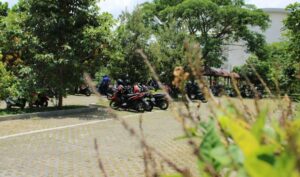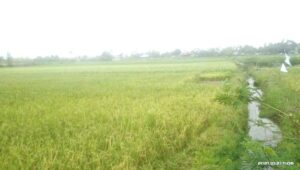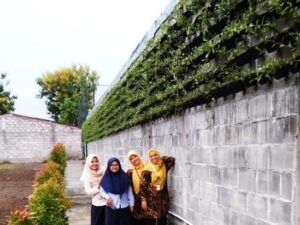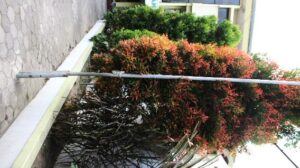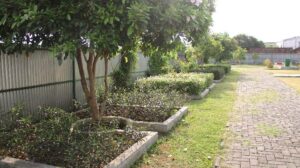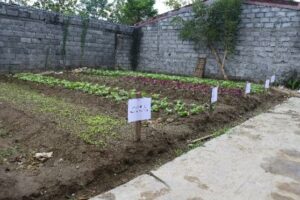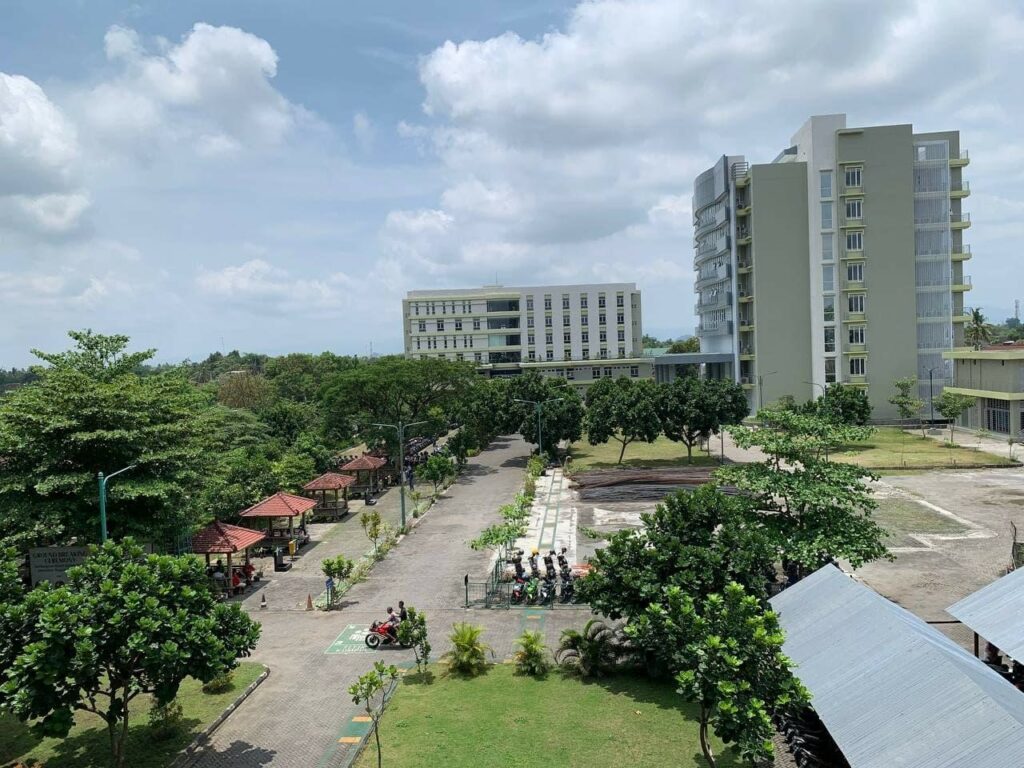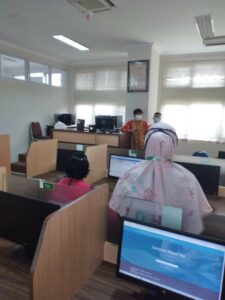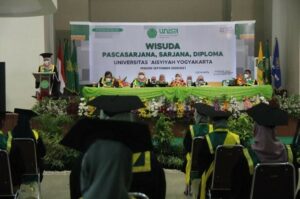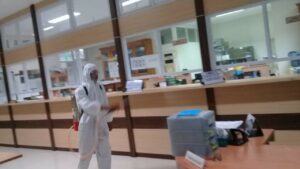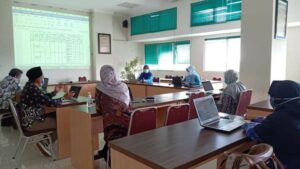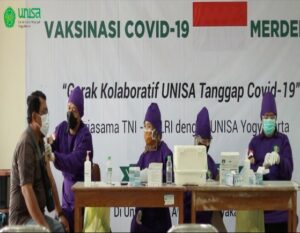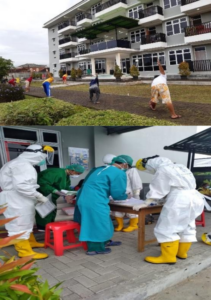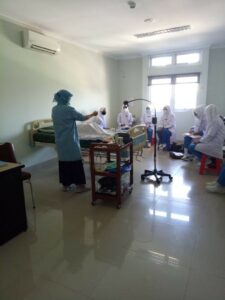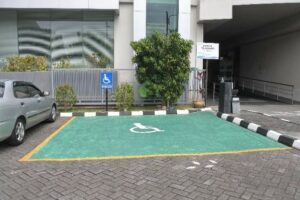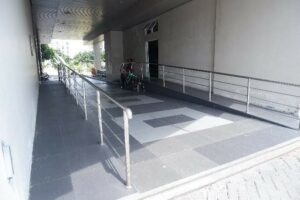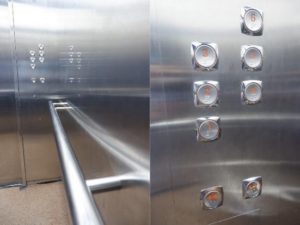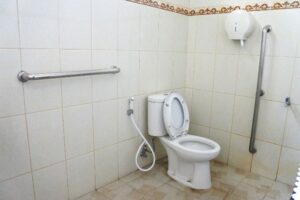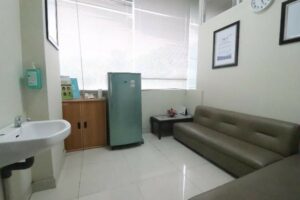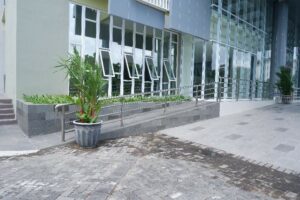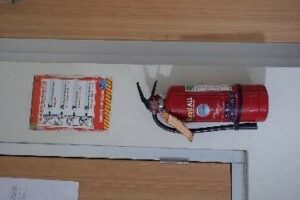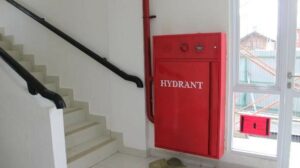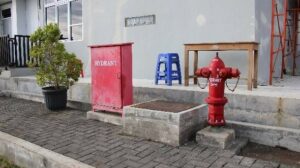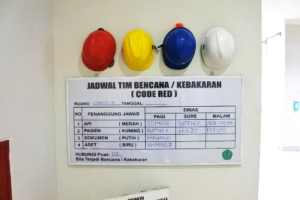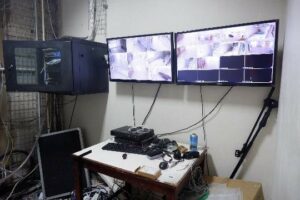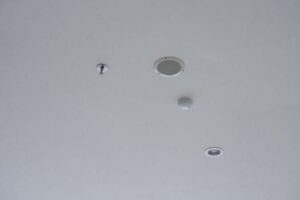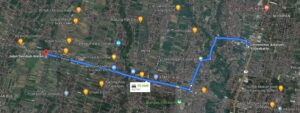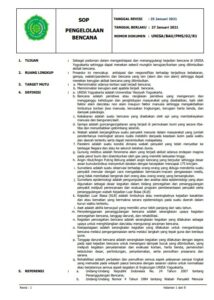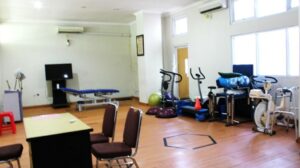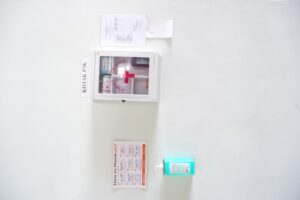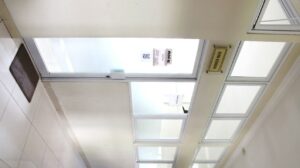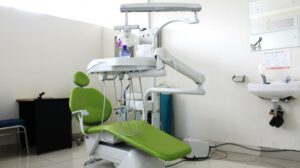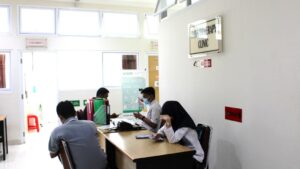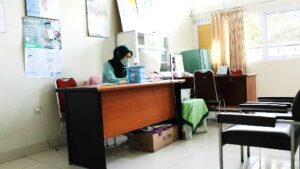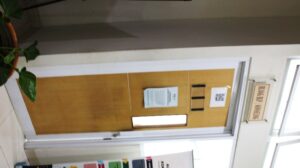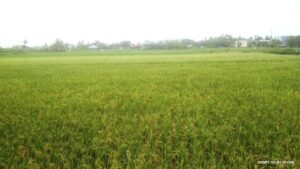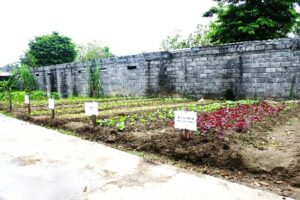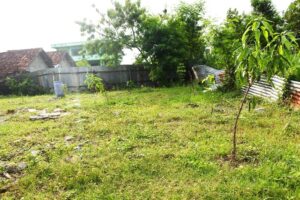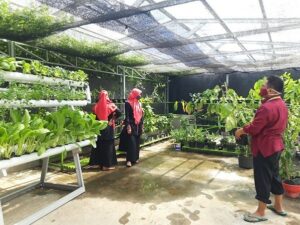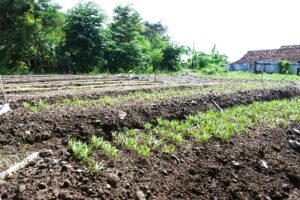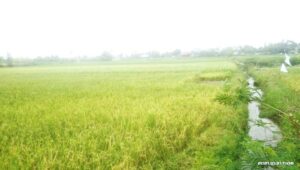Universitas 'Aisyiyah Yogyakarta
Green CampusSetting and Infrastructure
Universitas ‘Aisyiyah (UNISA) Yogyakarta is a campus that stands on an area of 50696.07 square meters located in two different administrative areas. The first location is in the administrative area of Yogyakarta City. While the second location is in the administrative area of Sleman Regency. Both locations are within the D.I.Yogyakarta Province. UNISA was established in 2016, which previously had a long history from 1963 starting as the Midwife School ‘Aisyiyah PKU Muhammadiyah Yogyakarta Hospital until finally becoming a university in 2016. UNISA Yogyakarta has three faculties and offers 20 Study Programs in the form of diplomas, bachelors, profession, and postgraduate. UNISA Yogyakarta facilitates academics with several campus facilities such as administrative buildings, auditoriums, mosques, sports fields, student dormitories, and public spaces. UNISA Yogyakarta with big aspirations to become a superior university and a choice based on the spirit of progressive Islam with a focus on the study and development of the Health sector is well known in the implementation of campus facilities that support sustainability and health such as reducing plastic waste drinking bottles with refillable gallon water, paperless and the provision of handwashing and disinfectant areas in various campus areas.
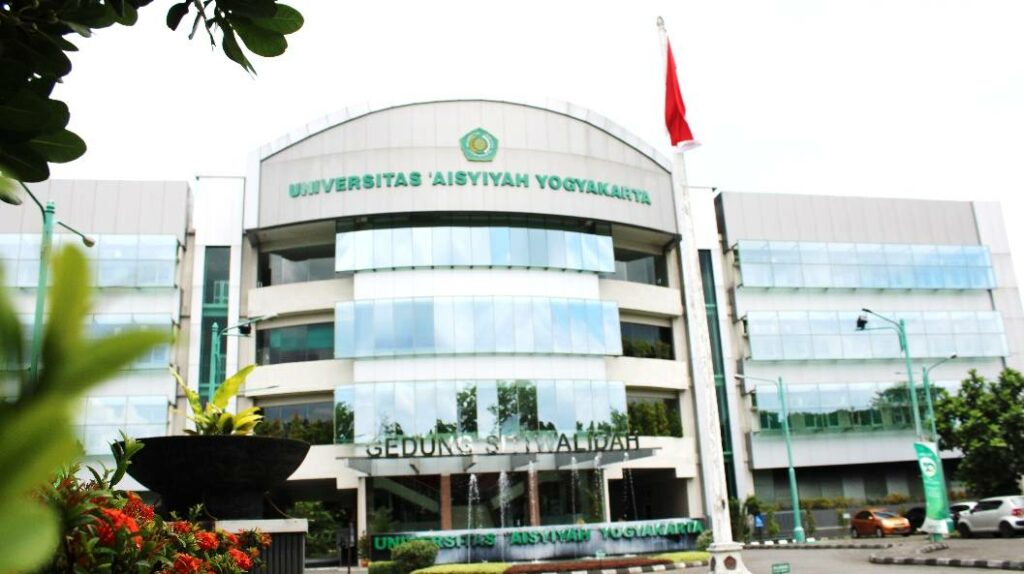
Figure 1. The Main Administrative Building of Unisa Yogyakarta
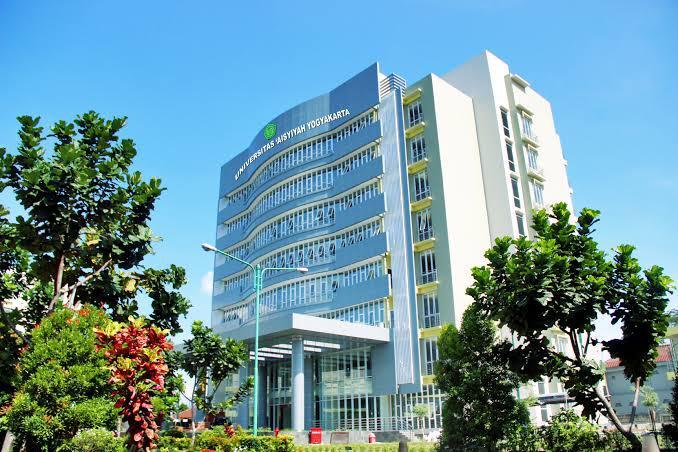
Figure 2. The Education Building of Unisa Yogyakarta
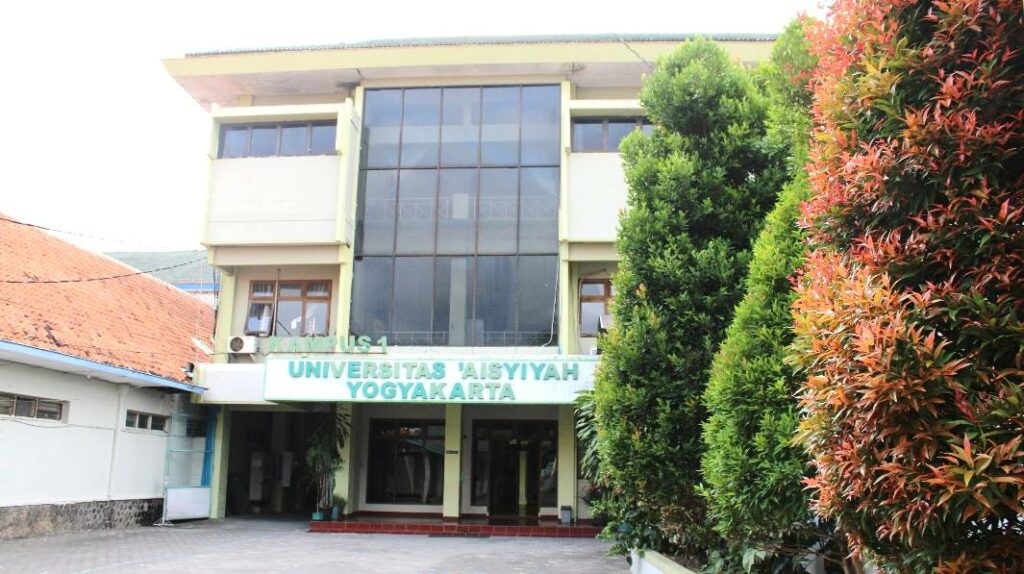
Figure 3. The Education Building, Located on Munir Street
- Plant Vegetation
- Water Absorption
- Maintenance Activities During Covid-19 Pandemic
- Campus Facilities for Disable, Special Needs and or Maternity Care
- Security and Safety Facilities
- Health Infrastructure Facilities for Students, Academics and Administrative Staff's Wellbeing
- Conservation
UNISA Yogyakarta campus has several areas planted with vegetation. The form of vegetation varies, but the area is mainly covered by grass vegetation, especially Campus block A. In addition, UNISA Yogyakarta also helps the food needs of employees. Unisa Yogyakarta has some rice fields as part of fulfilling the need for rice assistance. UNISA also has many nutritional gardens owned and managed by Unisa and its faculties, such as the Nutrition Gardens owned by UNISA Yogyakarta and the Nutrition Gardens owned by the Faculty of Health Sciences. Another domination of plants is shady tree plants in green lines at several parking area points such as
Block A Building, Rusunawa, and Campus 1. These plants help to shade the vehicle parking area so that the vehicle does not get too hot. In addition, UNISA Yogyakarta also carried out some creative plant placements by utilizing vertical gardens along with the Fikes Nutrition Garden and the Bridge Fence Building B, as well as plant pots spread across many campus areas, starting from the rooftop of Building B and the cantilever area of the building A on the 2,3rd floor of Building and 4.
- Figure 3. Green Line on Parking Blok A
- Figure 2. The Biotek Garden
- Figure 1. Vertical Garden near The Nutrition Garden
- Figure 6. Green Line on Parking Campus 1
- Figure 5. GreenLine Near Rusunawa Street
- Figure 4. The Fikes Nutrition Garden
Paving dominates the surface area of the Universitas ‘Aisyiyah (Unisa) Yogyakarta campus, including the road and parking areas. The paving used in the campus area of the Universitas ‘Aisyiyah Yogyakarta has various types and forms. In addition to paving, grass also covers the surface area of the campus area, which serves to help absorb water into the ground if it rains. The grass area has various locations, for example, in the front garden of Building C (Siti Moendjiyah building), Part of the Green Open Space of Rusunawa, and behind the area of Building A (Siti Walidah building) on the east side of the building.
During the COVID-19 pandemic, all rooms in the UNISA Yogyakarta campus building area continued to operate and maintain on a scheduled regular basis. The Yogyakarta UNISA Task Force controls the circulation of the community in each room by implementing the “SwaKunjungan Ruang” program in the form of barcodes affixed to each door. The visitor should scan before entering the room as a track record for tracing purposes if needed. The Unisa Yogyakarta task force went hand to hand with the Asset and General Bureau and Laboratory units regarding campus buildings and facilities during the pandemic. The Head of the Asset and General Bureau is responsible for controlling the offline activities of using space in each campus building through the approval of the UNISA Yogyakarta Covid-19 task force. The Head of the Asset and General Bureau is also responsible for scheduling area cleaning following lecture rules and Standard Operating Procedures for room decontamination. Meanwhile, the laboratory coordinator arranges the schedule for the use of the practicum learning activity room.
- Figure 2. Preparation and checking CBT center for national competency examination
- Figure 6. Implementation of hybrid graduation in the auditorium of Unisa Yogyakarta
- Figure 7. Scheduled general decontamination
- Figure 4. Use of classrooms for meetings and discussions
- Figure 5. Covid vaccination activities use classrooms and auditoriums
- Figure 3. Rusunawa as Integrated Isolation shelter for Covid-19 sufferers during the pandemic
- Figure 1. Skills laboratory for practice during covid-19 pandemic
Disabled parking is located near the main campus buildings such as Buildings A, B, C Block A, and Rusunawa Building, as well as Campus Building 1. Disabled parking positions are marked with wheelchair-patterned paint and wheelchair-like bars. The parking position is close to the main entrance to the campus and does not interfere with the circulation of road users so that the parking area is safer and makes it easier for the disabled to access.
UNISA Yogyakarta campus provides toilet facilities for people with disabilities with door sizes that are suitable for wheelchairs. In addition, the toilet for the disabled has a handrail and a toilet seat to make it easier for users. UNISA Yogyakarta campus has a lactation room in the main building with complete and comfortable facilities such as an appropriate sofa, refrigerator, sink, and trash can. UNISA Yogyakarta campus has a unique contour with a height that is not parallel to the height of the road, so it requires ramps for universals. However, ramps are 20cm taller than universals for particular people, and the university has provided it for those in need in Building B. The UNISA Yogyakarta campus supports sustainable building by realizing upward development, thereby reducing the built-up surface area. Therefore, elevators as vertical transportation access are essential for all elements of the Unisa Yogyakarta community in carrying out academic activities. Furthermore, as a disabilities-friendly campus, all elevator buttons in the UNISA Yogyakarta building have braille characters, and the elevator has handrails.
- Figure 4. Disabled Parking in front of Building A Block A
- Figure 1. Ramps in Building A Block A
- Figure 2. Difabel Buttons and Handrail Lifts in each lift (example image of Building B)
- Figure 5. Disabled Toilet Building A Block A
- Figure 3. Lactation Room A . Building
- Figure 6. Ramp Building C Block A
UNISA Yogyakarta building has a good and structured Safety and Security infrastructure. Each building has complete facilities to support active and passive safety. Passive facilities, for example, are the implementation of emergency stairs in every building, particularly buildings with a capacity of more than 100 occupancy loads and have many floors such as in Building A, Building B, Building C, and Rusunawa. The UNISA Yogyakarta building also has a gate security system as a security boundary for the building surrounding the Unisa Yogyakarta location outside the campus area. Meanwhile, active facilities include the installation of sprinklers, heat detectors, smoke detectors, fire extinguishers, environmental hydrants, building hydrants, CCTV, CCTV control rooms, and alarms. These active facilities are spread across various floors of the building to assist in times of emergency.
In addition to active and passive facilities, UNISA Yogyakarta has several procedures for handling emergency conditions:
- In collaboration with MDMC and local firefighters, UNISA Yogyakarta conducts regular disaster management training for the entire community.
- Staff and lecturers, as well as student representatives, simulated an emergency scenario on campus. It aims to improve the readiness of the Unisa Yogyakarta community in dealing with emergencies.
- Unisa Yogyakarta has Work Instructions. The security guard team has three different duties; morning, afternoon, and evening schedules.
- In an emergency, employees follow the procedures in Standard Operating Procedures to call 101, Hotmail, which will connect the nearest firefighters, namely the Sleman District Fire Department, with a distance of about +4.6km, approximately 10 minutes on the way.
- Figure 4. Fire extinguisher in B Building
- Figure 2.Hydrant in Building (Building Location A)
- Figure 1. Environmental Hydrant in Rusunawa
- Figure 7. Safety Picket Officer Helmet
- Figure 3. CCTV Room in B Building
- Figure 6. Sprinkler and Heat Detector
- Figure 9. The distance between the Unisa Yogyakarta campus and the Godean Fire Department
- Figure 8. Campus Standard Operating Procedures Policy for Disaster Management
- Figure 5. Evacuation Line Signage
- Universitas ‘Aisyiyah Yogyakarta provides health services with comprehensive service support for the entire academic community. In collaboration with the Muhammadiyah Health Fund (DSM), UNISA Yogyakarta provides health services at the DSM clinic Building A, South Wing with service hours from 10.30 am-12.00 pm during six workdays.
- Universitas ‘Aisyiyah Yogyakarta facilitates all students to get Emergency services (if needed) at PKU Muhammadiyah Yogyakarta Hospital unit I and unit II.
- Universitas ‘Aisyiyah Yogyakarta employees, both students, lecturers, and education staff, are facilitated with National Health Insurance connected to the hospital across the nation.
- Universitas ‘Aisyiyah Yogyakarta has health service facilities such as Dental and Oral Clinic, Physiotherapy Clinic, Psychological Clinic, and General Practitioner Clinic. In addition, all staff serving in health clinics are licensed and are experts in their fields.
- Universitas ‘Aisyiyah Yogyakarta organizes vaccines for the entire academic community and for the public in collaboration with the TNI POLRI in responding to the covid-19 pandemic and actively supporting the government to break the chain of the spread Covid 19. The activity uses a building in the Block A building located on Jalan Ringroad Barat.
In addition, Universitas ‘Aisyiyah Yogyakarta provides a first aid kit on every floor of the building containing emergency wound and injury care equipment (sterile gauze, antiseptic liquid or gel, latex gloves, safety pins, tweezers, wound plaster). Complementary medicines include painkillers or fever reducers, stomach pain relievers, cold and cough relievers, ulcer drugs, and antibiotic ointments for wounds. The UNISA First Aid Box also facilitates the emergency needs of women who provide sanitary napkins when the period comes
- Figure 4. Physiotherapy Clinic Room and Facilities
- Figure 6. First aid kits on every floor of the Unisa Yogyakarta building
- Figure 2. Health Clinic Facilities
- Figure 1 Dental Clinic in Unisa Yogyakarta
- Figure 3. Physiotherapy Clinic Registration
- Figure 3. Clinical Counseling Facilities and Certified Carers
- Figure 5. BLP room
UNISA Yogyakarta supports sustainability programs by implementing conservation to fulfill food and agricultural needs as a health-minded campus. So that UNISA Yogyakarta has several facilities in the campus area, namely:
- UNISA Yogyakarta Fruit Garden. Each study program donates seeds of fruit trees and uses them in the orchard
- The Faculty of Health Sciences establishes a Nutrition Garden containing vegetable crops and renews these plants monthly. It aims to increase participation in order to prevent an increase in malnutrition in the environment around campus.
- The Biotechnology study program established a Biotech Garden as a natural laboratory for applying genetic resources for food, especially grain crops. The location of the Biotech Garden produces rice plants aimed to supply healthy rice for all employees and lecturers in UNISA Yogyakarta (figure 5&6).
- In the next future, UNISA Yogyakarta will carry out the construction of a Retention Pond that is useful for helping water conservation.
- Figure 5. Biotech Garden
- Figure 2. Nutritional Garden Vegetable Farm Belong to The Faculty of Health Sciences
- Figure 4. UNISA Yogyakarta Fruit Plantation Garden East Side
- Figure 1. Interior Picture in Garden
- Figure 3. West side of UNISA Yogyakarta Fruit Plantation Garden
- Figure 6. Biotech Garden
